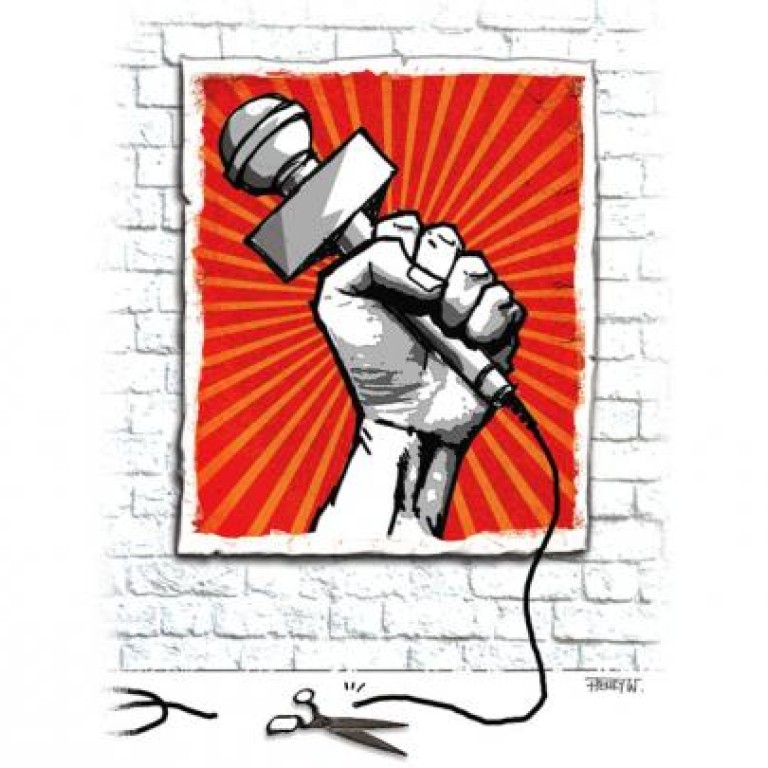
Wang Yang is no reformist leader
Chang Ping says the muzzling of the Guangdong media in the five years under Wang Yang's rule thoroughly undermines his image as a trailblazing reformist leader
Wang Yang has never been far from the limelight during his five years as Guangdong party chief, so cue the headlines when he stepped down last month for another posting. Reviewing his own performance in the south, Wang said he "had not been lazy or deceptive, or tried to avoid facing up to problems".
This was solid praise indeed, rather different from the self-effacing assessment that senior officials usually give themselves at the end of a job. Unfortunately, in this case, the huge gap between reality and expectations does not quite warrant such self-confidence.
At the start of the Hu-Wen era 10 years ago, hopes were high that the government would finally initiate political reform. The first five years came and went without any action, but people said it must be because President Hu Jintao was still under the thumb of Jiang Zemin. Wait for the next five years, they said, when Hu would begin to consolidate his own power, and then China would see progress.
So when Wang took up the Guangdong posting, many saw him as Hu's special envoy, sent to the southern frontier to forge a new path of political reform for the nation.
Since then, Wang has become the poster boy for the reformist camp in the party and a darling of the media. His image as a reformer has endured even as the reputations of both Hu and Premier Wen Jiabao have taken a beating: over the past decade, Hu has shown himself willing to use repression to "maintain social stability", no matter the damage to society and the political and legal systems, while Wen's image as a clean and upright politician has suffered after the devastating media reports on his family's wealth.
There's no doubt Wang stands out among senior party officials for his quick mind and lack of affectation. He was expressive, and knew how to dress up bureaucratic rhetoric to make it more palatable. He should also be credited for creating some room for debate on reform with his call to "liberate people's thinking" and his push to strengthen civil society.
But as a member of the Guangdong press, I saw how Wang set back the media during his five-year rule. Freedom of speech is the foundation of all political and democratic reform. From this perspective, we can hardly give his performance a good appraisal.
When Wang first came to Guangdong, he called for "ideological emancipation" so that we could have an open discussion on issues, harking back to the revolutionary spirit of "boldly forging ahead". In response, the published a series of encouraging editorials, along with its sister papers and the . As a result, the media in Hong Kong and Taiwan saw some hope for change. I was then working for the Nanfang Media Group and was in touch with the writers at these papers. None of us was really enthusiastic about the so-called ideological emancipation because, despite the talk, the government's grip on the media was just as tight.
In 2008, when protests in Tibet, the earthquake in Sichuan and the Beijing Olympics all stirred nationalist sentiments, the Nanfang publications became a target of attack. We worked in fear in those days. Feeling no support at all from Wang, we constantly checked ourselves. A commentary I wrote then, titled "Tibet: the truth and upsurge of ethnic sentiments", caused an uproar. A year later, at a public media conference, Wang did not criticise me by name but pointedly said that some people had taken the wrong stand on sovereignty and religious issues.
And in 2010, on the occasion of the 30th anniversary of the Shenzhen special economic zone, Wen made a call for structural political reform. Again, published several editorials to signal its support, calling on the southern city to lead the way for such reforms.
Just at that time, Beijing's ran a series of articles that said China should make a clear distinction between "socialist democracy" and "capitalist democracy", because both systems would lead to radically different answers about the exercise of political power.
The timing of these two sets of articles led a Hong Kong media outlet to infer a war between the reformist and conservative camps within Chinese politics, reminiscent of the time around Deng Xiaoping's southern tour in 1992, which did usher in political changes.
As far as I know, it was mere coincidence that the and the published those articles at the same time. It was not true, either, that the editorials were published only after they had been "approved" by Wang, or written at his behest. Those articles were entirely the work of the journalists at the paper. Yet it was rumours like that which fostered Wang's reformist image.
Later, I was told to leave the newspaper group, along with several other commentators, and we were replaced by propaganda officers. Such tactics had never been used during the time of Wang's predecessors, none of whom had his "reformist" credentials.
And during that time, an officer who was generally regarded as being conservative and inflexible took over as the provincial propaganda chief. All this might not have been Wang's idea. But it is a fact that it all happened on his watch.
It is bitterly ironic that a party "reformist" who came to power promising to "liberate our thinking" should leave his post with the media more muzzled than before. If he was sincere about his promise for reform, and this is the result, then some hard thinking is in order.
